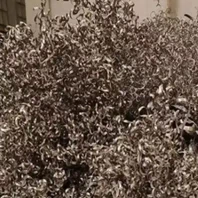Corrosion poses a significant challenge for titanium alloy sheets, particularly in reducing inorganic acids and specific organic acid environments where maintaining passivation proves difficult, accelerating corrosion rates. To effectively mitigate this issue, the incorporation of corrosion inhibitors has emerged as a potent strategy. These inhibitors, ranging from noble metal ions to heavy metal ions, oxidative inorganic compounds, oxidative organic compounds, and chelating organic inhibitors, play a crucial role in corrosion prevention. However, due to their high cost, noble metal ions are sparingly used as corrosion inhibitors in reducing inorganic acids. Heavy metal ions like copper and iron, upon reaching critical concentrations, exhibit noticeable corrosion inhibition effects.
Inorganic oxidative compounds such as nitric acid, chlorine gas, potassium chlorate, potassium dichromate, potassium permanganate, and hydrogen peroxide also demonstrate corrosion inhibition properties. Oxidative organic compounds, including nitro or nitroso compounds and nitrogen compounds, are similarly employed for inhibition. In contrast to oxidative organic compounds, chelating organic inhibitors exert corrosion inhibition at any concentration, albeit with varying efficacy.

Surface treatments play a pivotal role in enhancing the corrosion resistance of titanium alloy sheets. Common techniques include cathodic oxidation, thermal oxidation, nitriding, and coating technologies. Research indicates that coating technologies offer the most pronounced enhancements in corrosion resistance for titanium alloy sheets, surpassing even the corrosion resistance of Ti-0.15Pd. Anodizing titanium alloy sheets typically involve immersing them in a 5%-10% (NH4)2SO4 solution and applying a 25V DC voltage, effectively eliminating surface iron contamination, prolonging passivation durations, and preventing hydrogen absorption from iron contamination. Consequently, international standards mandate anodization for all titanium equipment. To enhance anodizing effects, sodium platinic acid may sometimes replace ammonium sulfate in the anodizing solution for superior corrosion resistance.
Thermal oxidation treatments conducted in air enable the formation of thicker, higher crystallinity rutile-type thermal oxide films on titanium alloy sheets, exhibiting superior corrosion resistance compared to anodized films. Thermal oxidation processes typically occur at temperatures between 600-700°C for 10-30 minutes, with excessively high temperatures or prolonged durations potentially compromising treatment efficacy.
Notably, coatings containing palladium exhibit remarkable effectiveness in titanium alloy sheet applications. Palladium-containing coatings often comprise palladium oxide or palladium alloy deposits. A typical method to prepare PdO-TiO2 coatings involves applying solutions of PdCl4 and TiCl3 onto titanium alloy sheet surfaces, followed by heating at 500-600°C for 10-50 minutes. This process can be repeated to achieve coating thicknesses exceeding 1g/m². Palladium alloy coatings are initially formed through electroplating or vacuum deposition, followed by surface alloying treatments like laser surface melting or ion implantation to enhance adhesion and corrosion resistance, surpassing the efficacy of palladium oxide coatings.
In conclusion, the strategic implementation of corrosion inhibitors and advanced surface treatment techniques, such as anodizing, thermal oxidation, and palladium-containing coatings, stands as imperative in fortifying titanium alloy sheets against corrosion challenges, ensuring prolonged durability and performance in diverse environments.




